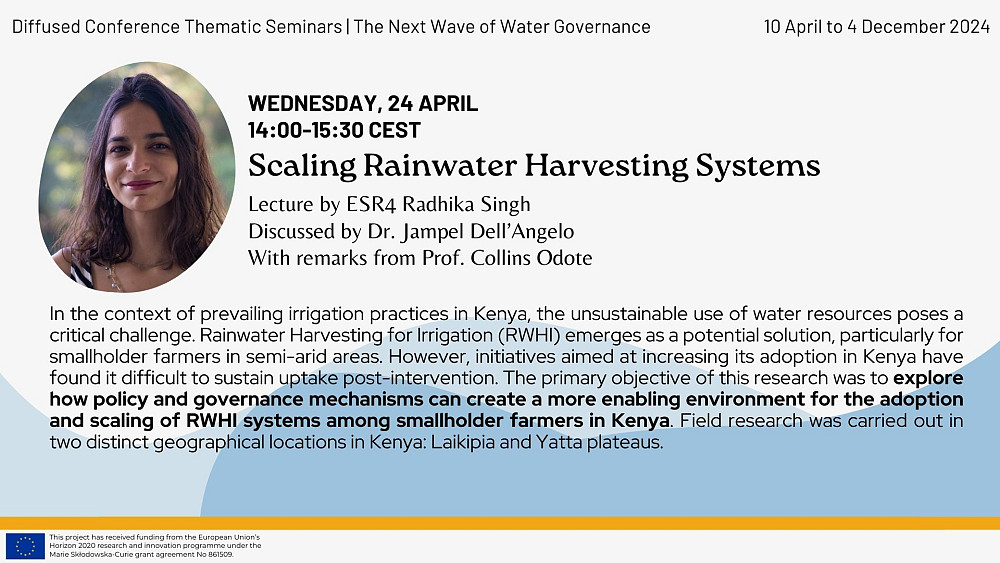Scaling Rainwater Harvesting Systems | “The Next Wave of Water Governance” Diffused Conference Thematic Seminars
"Scaling Rainwater Harvesting Systems" by Radhika Singh (NEWAVE ESR4)
In the context of prevailing irrigation practices in Kenya, the unsustainable use of water resources poses a critical challenge. Rainwater Harvesting for Irrigation (RWHI) emerges as a potential solution, particularly for smallholder farmers in semi-arid areas. However, initiatives aimed at increasing its adoption in Kenya have found it difficult to sustain uptake post-intervention. The primary objective of this research was to explore how policy and governance mechanisms can create a more enabling environment for the adoption and scaling of RWHI systems among smallholder farmers in Kenya. Methodologically, the study employed the theoretical lens of Technological Innovation Systems, and complemented it with frameworks from Sustainability Transitions and the Livelihoods Perspective. Qualitative methods, including critical grounded theory, process tracing, a comparative case study approach, and reflective thematic analysis, were utilized to collect and analyze data. Data collection involved carrying out key informant interviews and focus group discussions, as well as reviewing policy documents, project reports and academic articles. Field research was carried out in two distinct geographical locations in Kenya: Laikipia and Yatta plateaus.
About the speaker:
Radhika Singh works on improving water security in fragile and conflict-affected settings (FCAS). Currently a consultant for the International Water Mangement Institute, a research-for-development organization, she has carried out research in sub-Saharan Africa, South Asia, and South-east Asia on water- and climate-related challenges. Her PhD from the University of Nairobi focused on the scaling of rainwater harvesting systems for smallholder irrigation development. She is based in Nairobi, Kenya.




